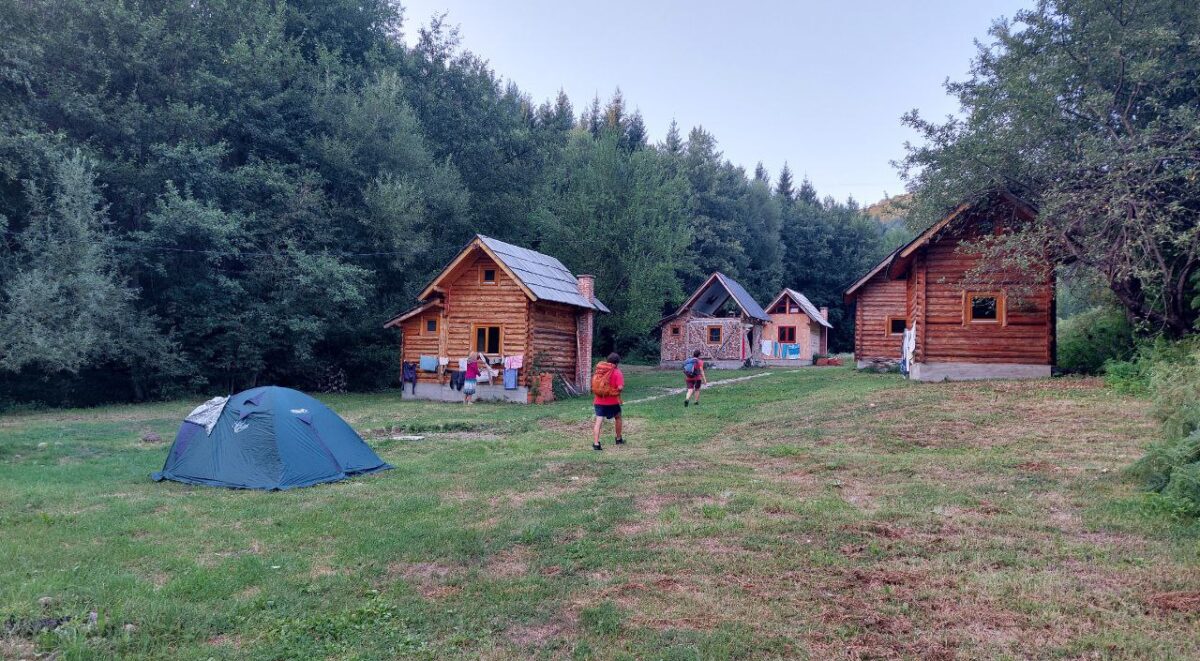
As has been the case in the last few years, this August as well the Italian Naturefriends travelled to the Ekometa village, located near Srebrenica (Bosnia-Herzegovina), to help with household and maintenance works and enjoy the beautiful local nature. Our ESC volunteer Enrico joined them in this interesting experience.
Ekometa is a tiny village hidden in the forest around the town of Srebrenica. Nature is an essential component of this place’s identity, with woods, creeks, a vegetable garden, wild animals (especially noisy dormice during the night), astonishing starry skies, and an amazing combination of nature sounds and immense silence. Sustainability is also a major feature of this venue, in terms of very efficient water usage, solar-based lamps for the houses, and consumption of local products (mostly from the garden or local producers), which also contributes to very little waste generation. Established in 2019, it can now host up to fourteen visitors in four lovely wooden houses. However, every year some changes and improvements occur in this magic village and, to some extent, this is also due to the Naturefriends movement! For almost ten years now, the Italian Naturefriends (GIAN) have helped build houses, construct pieces of furniture, or improve the facilities for some time during the summer period.
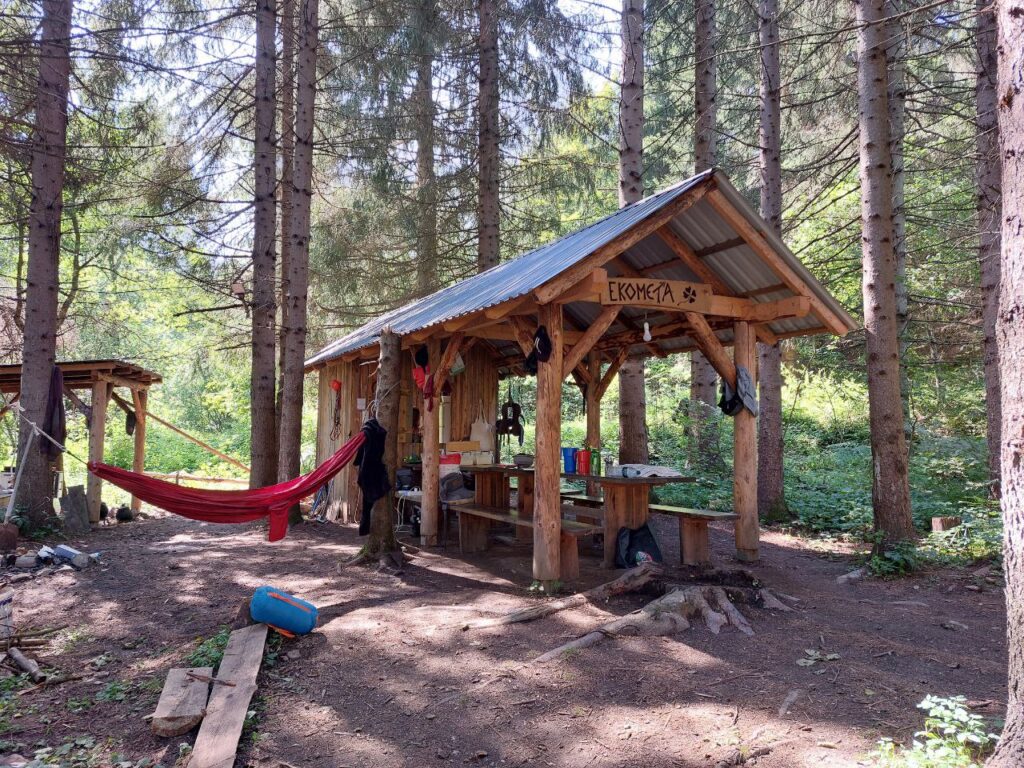
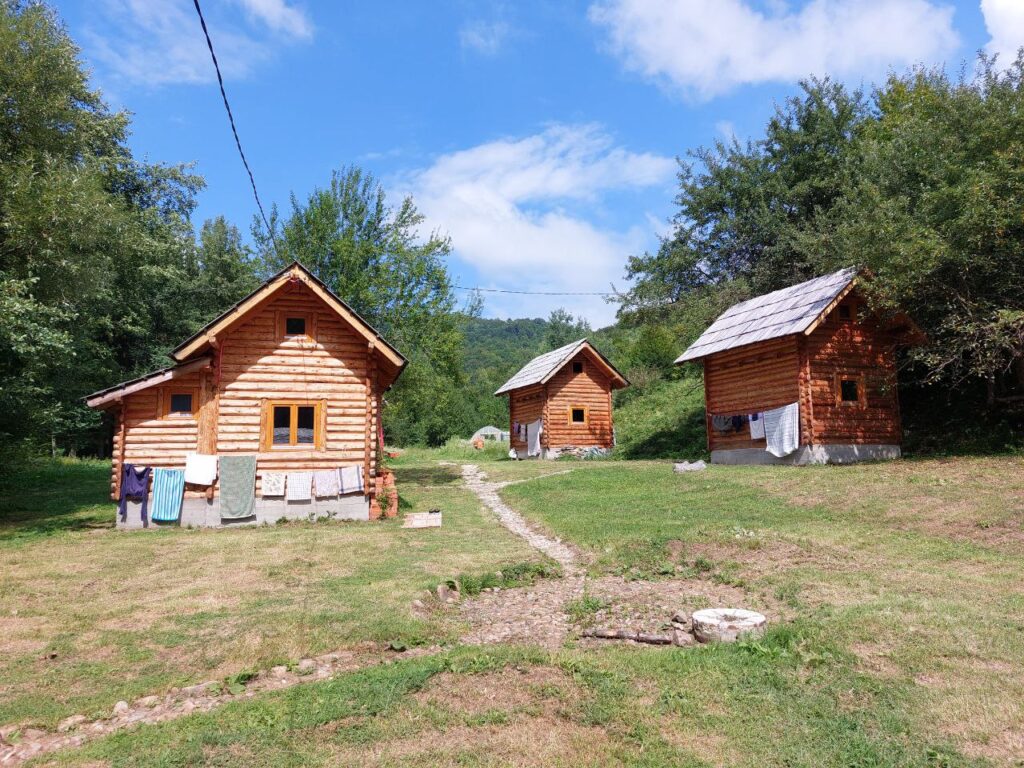
This August was not an exception and a small group, including our ESC volunteer Enrico, went there to help and to visit the area. Besides the general household management and some minor construction works, the task for this year was to start building a new bunk bed, which will be located in one of the houses. Then, when a group of fourteen Austrian visitors arrived (with many Naturefriends among them as well), the routine got more intense, but fun and pleasant at the same time. A couple of hikes, a trip on the river Drina (which has shaped a very deep, stunning canyon in this region), nice company, and, unluckily, some summer storms made the time there fly by.
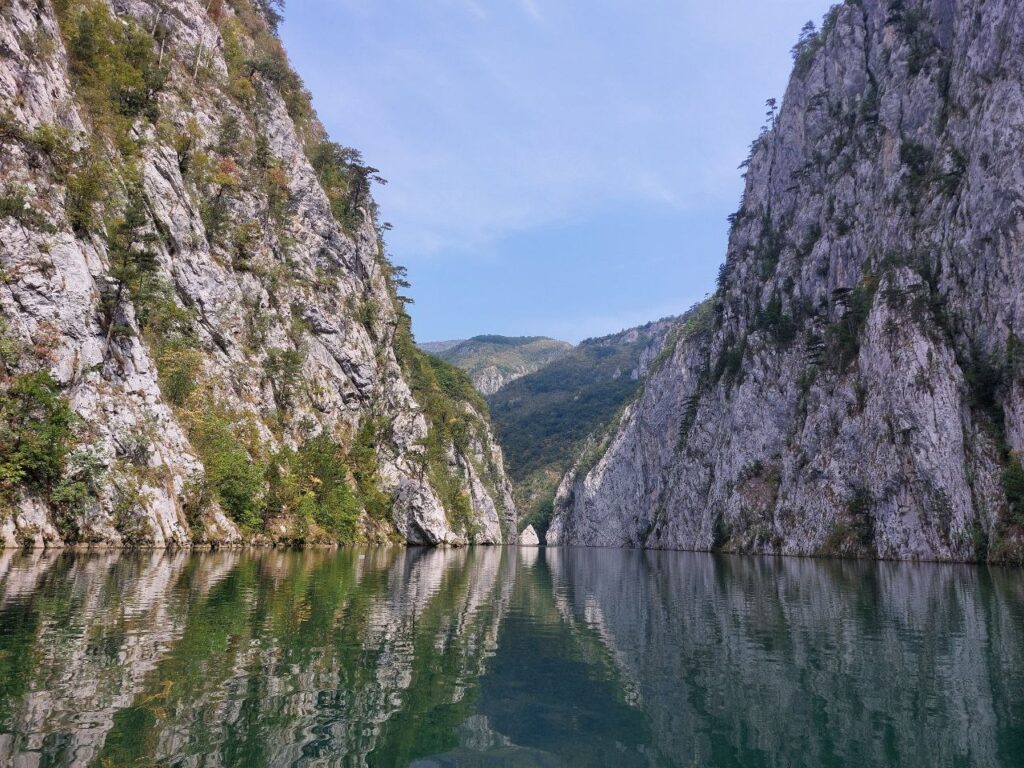
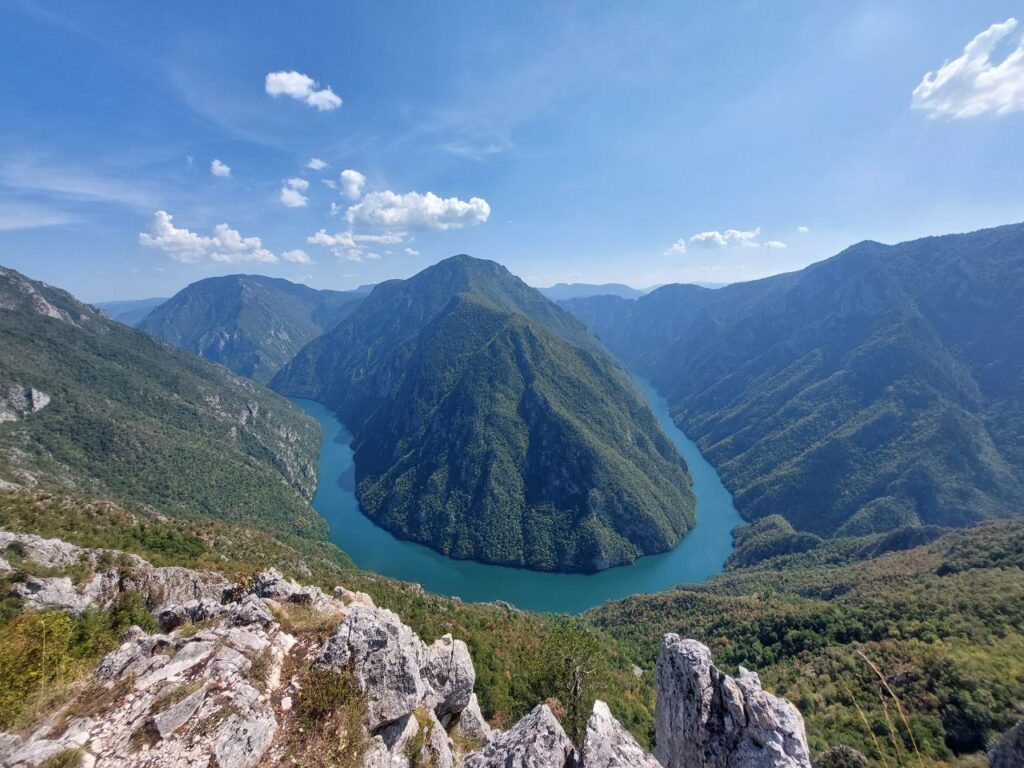
However, this area also has a significant historical background, which can barely be overlooked. When people hear about Srebrenica, most of them think of its recent, dramatic history of war and genocide. These happenings have indeed left a powerful and visible mark on this part of Eastern Bosnia and its people, in terms of depopulation, poverty, conflicting memories, and much more. A visit to the cemetery and to the memorial of the 1995 genocide, which is located in a former factory that served as a UN headquarters during wartime, was therefore a must, and a very powerful experience. It is almost impossible to walk through these places without being deeply touched and reflecting upon the depravity of war. Unfortunately, this message is still very relevant in today’s world as it was thirty years ago.
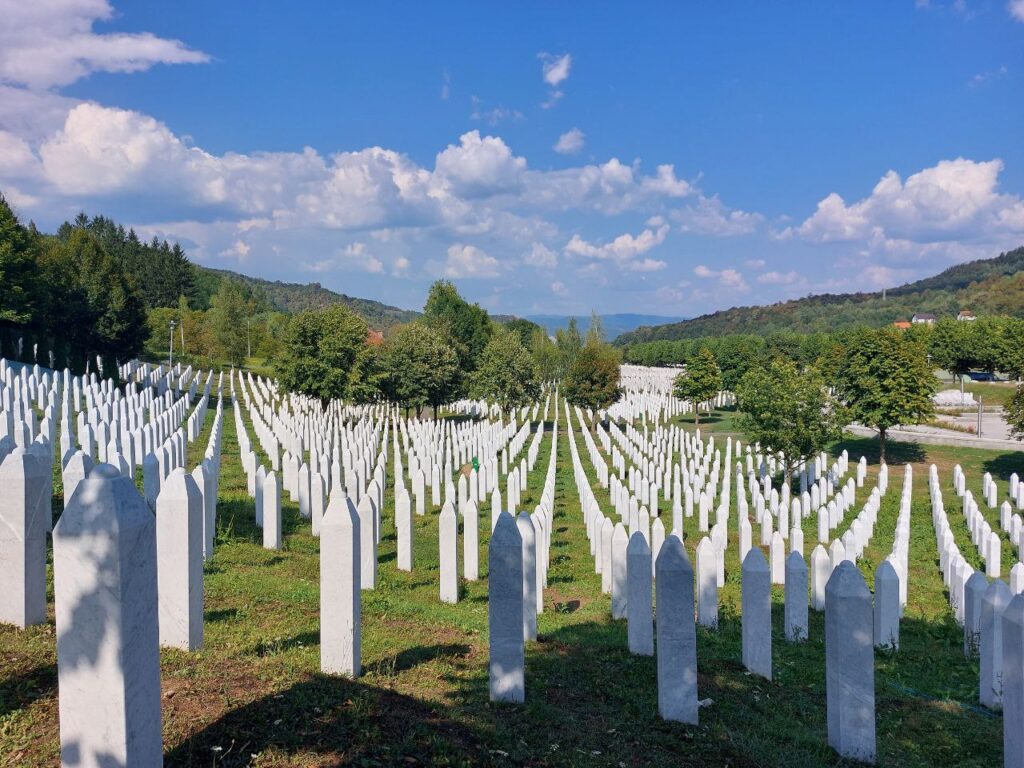
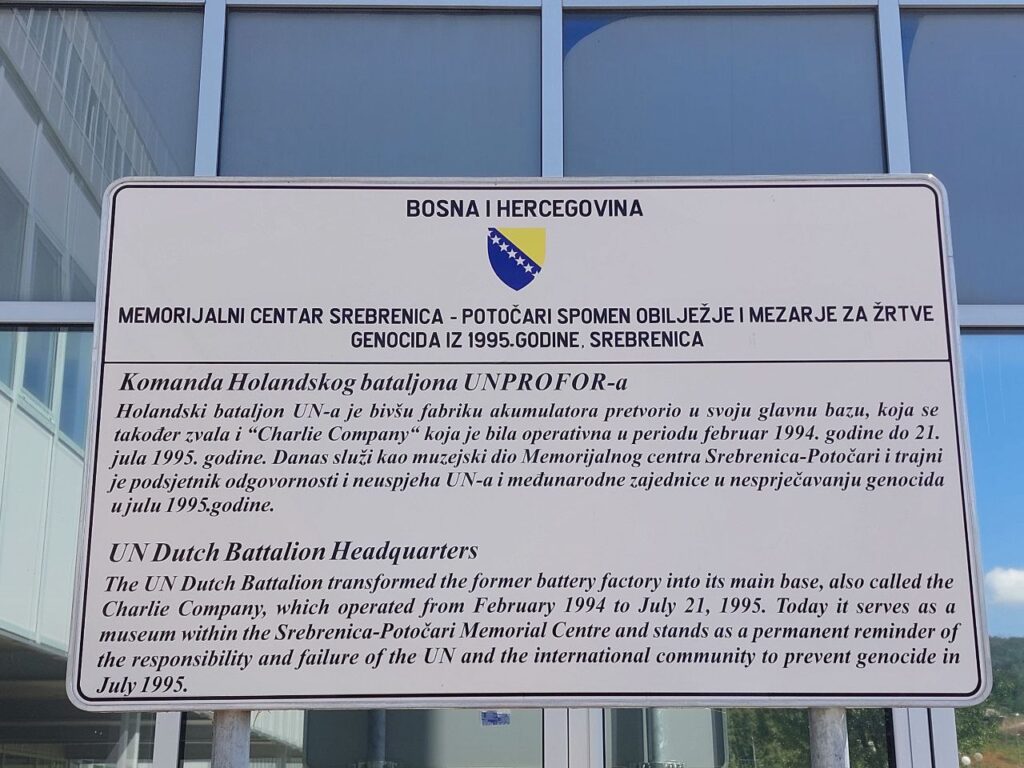
This rich mixture of cultural, historical, natural, and practical facets has thus made the days spent in Srebrenica and at Ekometa an experience full of inspiration and enhancement.
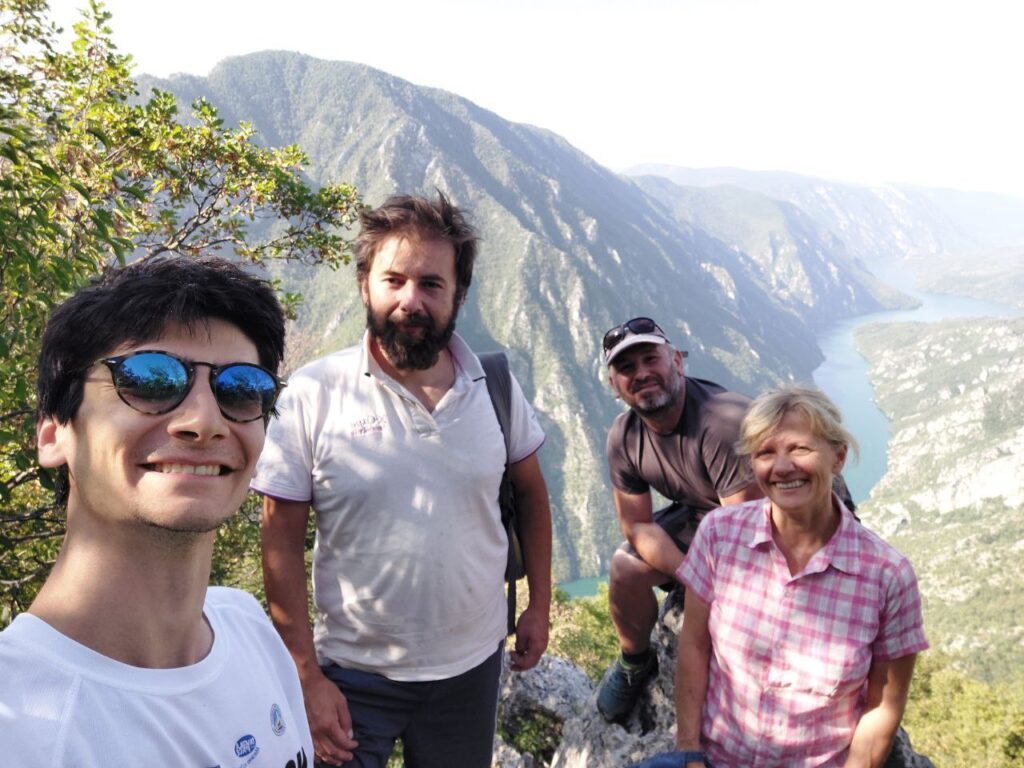
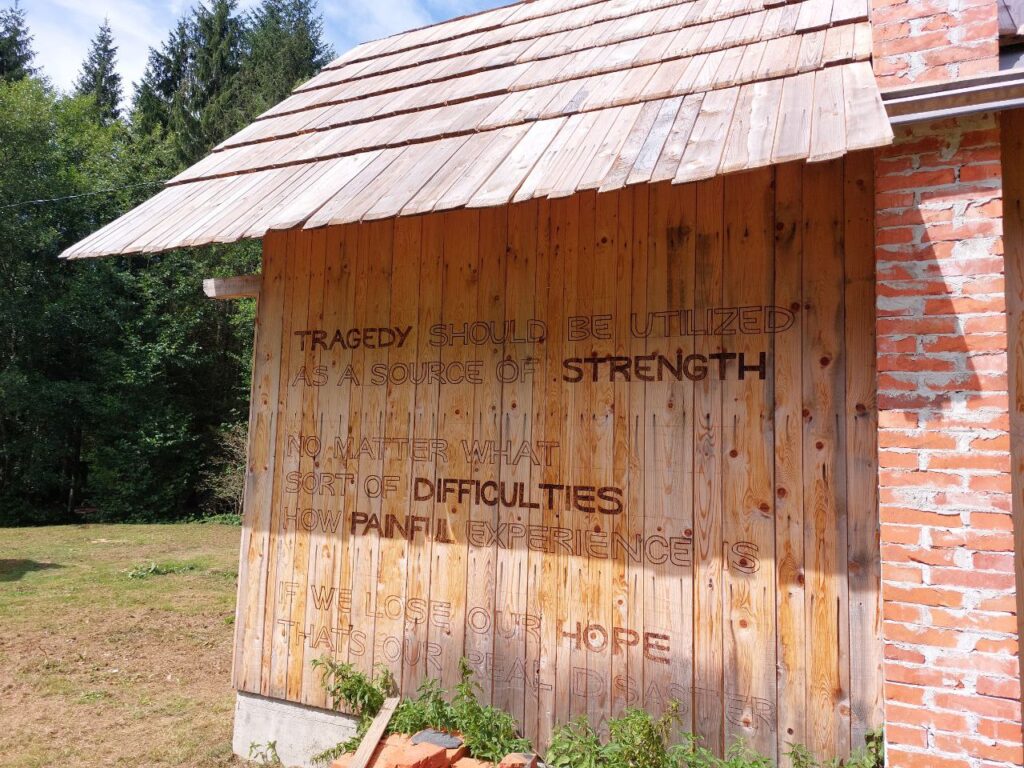
Berg frei,
Enrico
